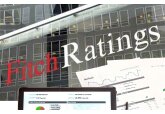
The European Parliament approved on March 11 a new Support Plan for Moldova with funding of €1.9 billion
In particular, the European Parliament approved on Tuesday a new Support Facility for Moldova, focusing on better financing and democratic oversight, it said in a statement. MEPs approved the preliminary agreement reached by the Parliament and EU Council negotiators on February 19 on a Reform and Growth Facility for Moldova. Through grants and low-interest loans, the program seeks to help Moldova deal with its main challenges, in particular the profound impact of Russia's aggression against Ukraine on the country's security, economy and population. The instrument should also strengthen Moldova's resilience to Russian hybrid attacks and interference aimed at its democratic processes and institutions. During negotiations between MEPs and the EU Council, grant-based aid was increased: negotiators agreed to provide €520 million in grants, an increase of €100 million over the original proposal, along with €1.5 billion in low-interest loans. This adjustment will allow Moldova to carry out reforms without accumulating unsustainable debt. Accelerated access to financing is also envisioned. The Facility provides for 18% pre-financing of total support, up from the originally proposed 7%, allowing for rapid deployment of resources to improve energy security, anti-corruption infrastructure and modernize public services. Administrative capacity building is envisioned. 20% of the grant funds will support Moldova's institutions through digital governance systems, training of civil servants and judicial reforms - prerequisites for efficient management of EU funds. A strengthened oversight structure is agreed: to ensure full parliamentary control, the agreement establishes a dialog between the Parliament and the European Commission to regularly review implementation. The agreement also allows for voluntary contributions from other donors - international financial organizations - to provide additional financial assistance to Moldova. Finally, the Facility shall not support activities or measures that could undermine the country's sovereignty or territorial integrity. MEPs approved the mentioned Facility for Moldova with 499 votes, 117 voted against and 44 abstained. The co-rapporteur of the European Parliament's Budget Committee, Siegfried Muresan, said that given the latest geopolitical developments, the EU is ready to act. “With today's vote on Moldova's €1.9 billion Reform and Growth Facility, we are increasing the provisional funding from 7% to 18% and adding an additional €100 million in grants. This is our commitment to do more and to act quickly to support Moldova and our neighbors in these difficult times,” he said. Foreign Affairs Committee co-rapporteur Sven Mikser said that the Facility demonstrates commitment to Moldova's EU accession by providing crucial support for important reforms. “This Facility underscores our commitment to Moldova's EU accession journey and supports the country in undertaking necessary reforms to strengthen democratic institutions, enhance energy security, boost economic growth, and improve the lives of its citizens. Raising the grant component to 20.5% and the pre-financing rate to 18% secures €520 million in non-repayable support for Moldova and ensures rapid access to funding,” he emphasized. The provisional agreement will be submitted to Parliament’s plenary (March) and the Council for final approval. The Facility will enter into force after approval by the European Parliament and the Council and after its publication in the EU's Official Journal. It will grant Moldova access to a maximum of €1 billion 885 million in 2025-2027, which includes up to €1.5 billion in concessional loans. The Facility also provides €520 million in grants, of which €385 million in the form of non-repayable financial support and €135 million set aside to provision the loans retained in the EU budget as a guarantee for investors. The Reform and Growth Fund is part of the EU's broader Growth Plan for Moldova, aimed at doubling its economy in 10 years while promoting socio-economic stability. The instrument is modeled after similar initiatives in other EU candidate regions, such as the Western Balkans Facility. It represents a significant step forward in Moldova's path toward EU membership. // 11.03.2025 - InfoMarket







